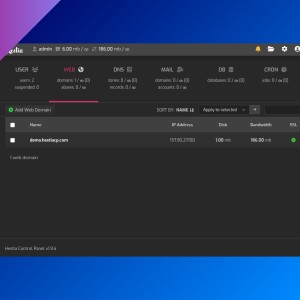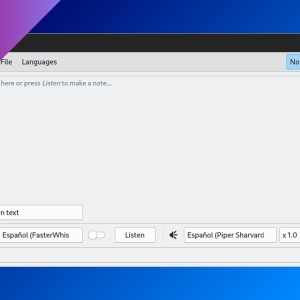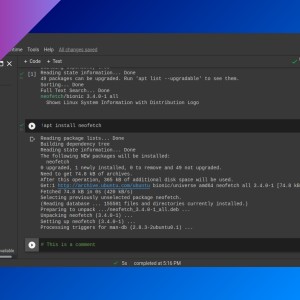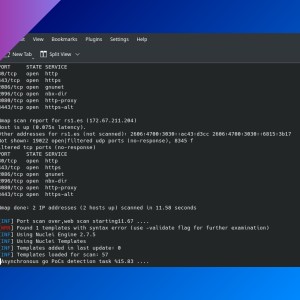Convert between several markup formats with Pandoc
Table of Contents
Pandoc is a command-line tool for converting from one markup format to another: Markdown, HTML, LaTeX, DOCX, etc.
Installation
pandoc is likely installed on your system, but if it’s not, you can easily install it with your operating system’s package manager.
Basic usage
Pandoc syntax is simple:
pandoc [<options>] <input file>- If no input files are specified,
pandocreads from standard input (‘stdin’). - Output goes to stdout by default.
- Format of the input and output files are guessed based on files’ extensions, unless explicitly specified.
Options
-o <file>: specify an output file.-f <format>: specify a format for the input file.-t <format>: specify a format for the output file.-s: produce a ‘standalone’ document (e.g.: a valid HTML file with the<head>and<body>tags) instead of a document fragment.
Run pandoc --list-input-formats and pandoc --list-output-formats to print a list of supported formats.
Examples
You can do a lot of markup and file conversions with pandoc. Check its man page for more info (man pandoc). These are some examples with Markdown:
Markdown to HTML
pandoc -s -o output.html markdown.mdHTML to Markdown
pandoc -o web.md index.htmlMarkdown to manual page
- Check the result before saving
pandoc -s -t man mycommand.md | man -l -- Save the manpage
pandoc -s -t man mycommand.md -o mycommandMarkdown file must follow this syntax:
% COMMAND(1)
% John Doe
% January 2023
# NAME
command - my new command
# SYNOPSIS
`command [-t <type>] <file>`
# DESCRIPTION
My awesome command can do a lot of things.
# OPTIONS
`-t <type>` : specify a typeMarkdown to PDF
pandoc -o output.pdf markdown.md- Pandoc cannot convert from PDF to other format.
- Change geometry or papersize:
pandoc -V geometry:landscape -V papersize:a4 -o output.pdf markdown.mdMore
Convert between CSV-JSON, TXT-ODT/DOCX, Markdown-EPUB, HTML-PDF and much more, with the same syntax. Check pandoc manual page and the website (https://pandoc.org/).
If you have any suggestion, feel free to contact me via social media or email.
Latest tutorials and articles:
Featured content:











